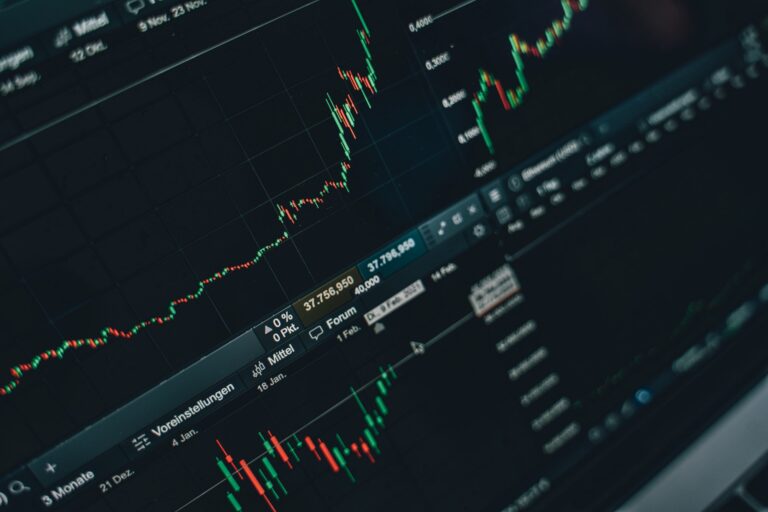The psychology of Money is easily one of the top books we have read and will review this year. The Author Morgan Housel skilfully uses statistics, philosophy and psychology to deliver a number of lessons to demonstrate that financial success is not a hard science but a soft skill where how you behave is more important than what you know.
Morgan began writing about finance and when the Great Financial Recession hit in 2008, trying to understand what was happening at that time helped him appreciate the psychology of money.
The Psychology of Money (book) comes off the back of a report he wrote in 2018 that outlined the 20 most important flaws, biases and causes of bad behaviour that affect people.
There are 20 chapters this book delivered in a concise and clear manner and although we’d love to explain the impact of each, we will highlight a few important aspects of some of these chapters.
Your Personal Experience with Money
This chapter sets the stage for understanding the times you live in, what the prevailing economic conditions are and how it affects your attitude to money, finance and investing since these affect everyone.
More importantly off the back of this, is knowing who to listen to or how to advise someone – and this is a life lesson.
Our desire to learn and improve when it comes to personal finance may lead us to follow and subscribe to different ‘content providers’ and while that is not a bad thing, the danger is we adopt their way of thinking without asking why or understanding the circumstances that have shaped their opinion.
Our experiences in life shape our perception and attitudes towards many things and in this case, money. An example the author gave was that Australia had not seen a recession in 30 years at the time of writing so their attitude to risk, as one would come to expect, will be lower when compared with the Americans or British who have seen their fair share of recessions.
Learning from peoples experiences offers perspectives and lessons for us. But we should remember that perspective is only part of the whole story and never all of it. The real power here is understanding why they hold those perspectives and the decisions they have made off the back of it.
Further on in the chapter he mentioned it was not until 1980’s the idea that everyone should have a dignified pension took hold and the way to get this was to invest their own money. The ROTH IRA did not exist until 1998, Index Funds at the time of writing were 50 years old.
You can appreciate these products shaped people’s attitudes to investing and saving and on a larger scale, and presented opportunities for business to add value to customers in this space.
The Siblings: Luck and Risk
Luck and risk are siblings. They are both the reality that every outcome in life is guided by forces other than individual effort.
Morgan Housel | The Psychology of Money
This quote introduces us to luck and risk and how they played a role in the life Bill Gates and Paul Allen in their early school years, leading eventually to the creation of Microsoft.
Kent Evans a lesser known name was a contemporary of Gates and could be considered in the same rank as him but he experienced the other side of luck’s sibling. You will need to read and find out what exactly happened.
This topic is eye opening and reaches to a deep part of human psychology where we want to be in control of outcomes and while that is not a bad thing, we must also accept the external forces that are at work and that often have a large impact on the outcome.
The impact of these forces can be seen when looking back and reflecting on our journey. Another important quote from this book is this:
Some people are born into families that encourage education; others are against it. Some are born into flourishing economies that encourage entrepreneurship; others are born into war and destitution.
I want you to be successful and I want you to earn it. But I need you to realise that not all success is due to hard-work and not all poverty is due to laziness. Keep this is mind when judging people, especially yourself.
Morgan Housel | The Psychology of Money
This quote encompasses many aspects of the human condition to a large degree; migration, human values, hard work and many other things can be seen through the lens of this quote.
The author used that route to highlight the importance of focusing less on individuals and case studies, but more on broad patterns and this ties in with the theme of the book. We will save our lessons and encourage you to read this book for yourself. Perhaps you will discover an aspect of that quote that hits home for you.
Social Comparison
Comparison or keeping up with the Joneses as it is well known, is another aspect of human behaviour that is mentioned in The Psychology of Money. In this chapter, the author uses a quote to convey the message.
The hardest financial skill is getting the goalpost to stop moving.
Morgan Housel | The Psychology of Money
Social comparison was highlighted to be one of the main contributors to moving that goalpost. There are many lessons to learn from the different examples he provided and our two cents here is as follows.
Think carefully about the risk you are taking for the returns you are getting and also consider the cost to acquire those gains. The cost can be emotional, physical, financial, relational and a combination of those to different degrees.
What really matters according to the author is your reputation, your freedom and independence, family and loved ones and happiness – and we agree with that.
The Effects of Compounding
Albert Einstein is said to have described compounding as the eighth wonder of the world. In life and investing, the effects of compounding is known but not really understood or appreciated especially judging by peoples attitude to get rich quick schemes and faking it until you make it.
We know and accept that little improvements in diet, reading, exercise, or anything for that matter adds up and looking back to where we started, we can see the growth.
Warren Buffet is known as the world’s greatest investor and while he is known for investing in great companies at a good price and sticking with them, the effect of compounding on his investment is not mentioned or emphasised.
To put it simply, Buffet’s average year one year returns are not the highest and as a matter of fact, that title goes to Jim Simmons from Renaissance Capital but the main difference (as the author put it) is that Jim got into his stride much later in life compared with Buffett who started investing early on and saw his returns compound over time.
I suppose a new way to summarise Buffet’s investing success is to start early, find good companies at a low price, hold on to them and let time do the rest.
For us, seeing compounding being described as an important aspect of the result in Buffett’s portfolio is both revealing and encouraging.
Tail Events: Rare and Powerful
You can be wrong half of the time and still make a fortune.
Morgan Housel | The Psychology of Money
This sounds counterintuitive at first but looking back at major events in our lives or in history, we can see there is a lot of truth to this. What initially comes to mind is the Pareto Principle but this is a lot deeper than that.
We will save you any spoilers or explanation and recommend you read this book especially, that chapter. There is one important lesson to highlight in this section and that is the importance on investing in an Index Fund. This particular lesson has been covered in our review of The Simple Path to Wealth.
Tail events can be described as events that have a small probability of occurring and occur at both ends of a normal distribution curve.
The author uses a selection of examples from Venture Capital, to Product Development, even to Disney’s success to demonstrate that tail events and how we react to them are determinants of outcomes – they are rare and powerful.
Using the sample study the author provided in this chapter, we can see why investing in an index fund, staying in the game, compounding your returns is the way to go.
In summary, J.P Morgan published the distribution of returns for the Russell 3000 – an index of 3000 companies in the US. These were the key findings:
- 40% of the Russell 3000 components lost 70% of their value and never recovered over that period.
- All of the index’s overall returns came from 7% of component companies that outperformed by at least two standard deviations.
In essence, the Index is self cleansing, broad based and allows you to benefit from the winners while having minimal impact from the losers.
As you can see a small portion of the companies accounted for a significant amount of the performance and if you had to consistently pick the winning stocks in that Index overtime, your investing results will be phenomenal but the reality is it is an almost impossible task.
In 2018 Amazon drove 6% of the S&P 500 return and most of that profit came from Amazon Prime and Amazon Web Services. This should deliver the point effectively and demonstrate how tail events, products and companies account for significant growth in Amazon and the S&P 500 Index.
The Bottom Line
We have covered a tiny fraction of the different chapters in this book and the lessons we have learnt. There are some many other lessons to learn including Wealth is not what you see and the importance and impact of saving.
There is something for everyone who reads this book; the lessons contained here are not merely for those who seek to gain superior investment returns or understand how the market works.
Money and finance impacts every aspect of our lives so having a grasp of the behaviour people exhibit when it comes to money, should help you make better career, life and investing decisions.
We leave you with one last quote:
The ability to do what you want, when you want, with who you want, for as long as you want, is priceless. It is the highest dividend money pays.
Morgan Housel | The Psychology of Money






